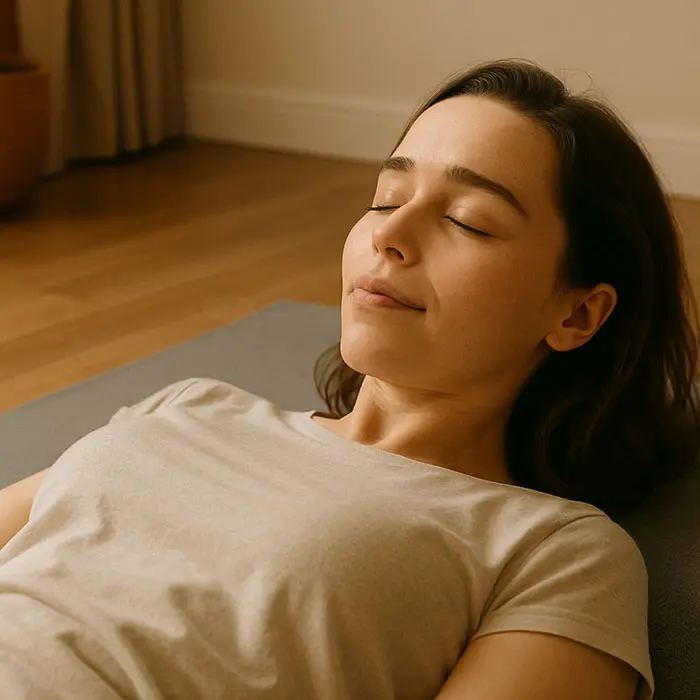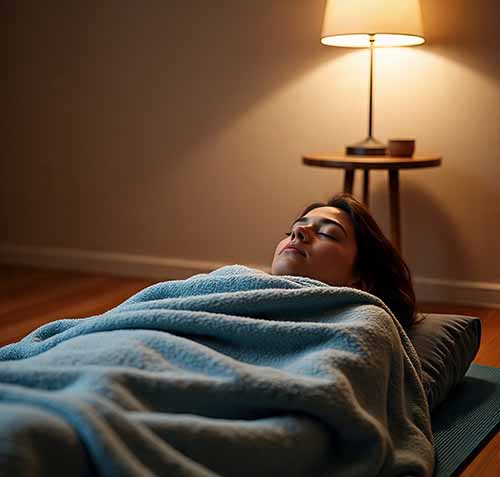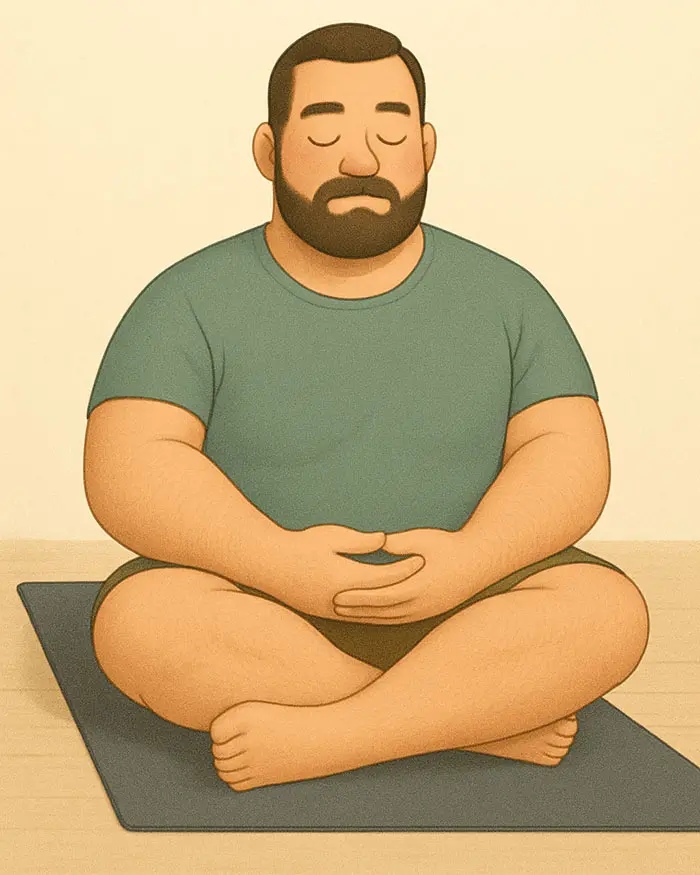Ever had one of those days where everything feels off? You’re irritable, can’t focus, and just feel… blah. You might think it’s just a bad mood, but what if your body is trying to tell you something? Oh man, I totally get how it feels when your body’s screaming for a break! 😅 Body awareness in self care isn’t always about face masks and bubble baths; sometimes, it’s as simple as drinking water before a headache hits or noticing that your jaw is clenched tighter than a drum. Your body’s been talking to you maybe it’s time to start listeniing physical self-care tips
In this article, we’ll dive into what physical self-care really means, why it’s crucial for your well-being, and how you can practice it in your daily life. Through personal stories, practical tips, and expert insights, you’ll learn how to decipher your body’s language and respond with kindness and care. Ready to tune in?

Self-care isn’t always face masks and bubble baths. Sometimes it’s drinking water before a headache, noticing jaw tension, or actually stretching that weird tight spot. Your body’s been talking. Maybe it’s time to listen
When My Body Yelled Before I Could Whisper “I’m Tired”
There was a week where I thought I was just “moody.”
Snappy. Foggy. Couldn’t focus. Everything irritated me.
And then I noticed I hadn’t taken a real breath in hours. My jaw hurt. My shoulders were up near my ears.
It wasn’t just a mood. My body was waving a little red flag.
But I wasn’t listening until it screamed
What Physical Self-Care Really Means (And Why It’s Not Just Spa Days) 💪
Physical self-care is about more than treating yourself to occasional luxuries. It’s about being attuned to your body’s needs and responding to its signals before they turn into screams. Whether it’s a nagging tension in your neck or a persistent feeling of fatigue, these are your body’s ways of saying, “Hey, I need some love here!”
Research suggests that listening to your body can have profound effects on your overall health. According to WebMD, understanding your body’s normal state helps you recognize when something is wrong, potentially catching health issues early. Plus, Psychology Today emphasizes that the mind and body are interconnected, and being aware of your physical state can enhance your resilience by managing stress and preventing burnout.
So, physical self-care isn’t selfish or indulgent; it’s a necessary practice for maintaining your health and well-being. It’s about respecting your body’s needs and taking proactive steps to care for it. And hey, you don’t need fancy products or spa days to do it it’s all about the little things, like drinking water or taking a moment to stretch

What Physical Self-Care Really Means (No Fancy Products Needed)
Physical self-care isn’t aesthetic. It’s not about spa days or pretty yoga mats. It’s about noticing the creaky knees, the low-key headaches, the way your back feels after hours in a chair.
It means tuning in before you r body shuts down.
And yeah, it’s not sexy. But it’s honest.
When My Body Yelled Before I Could Whisper “I’m Tired” 😔
There was a week where I thought I was just “moody.” I was snappy, foggy, couldn’t focus, and everything irritated me. At first, I chalked it up to stress or lack of sleep, but then I noticed something: I hadn’t taken a real breath in hours. My jaw hurt from clenching, and my shoulders were up near my ears. It wasn’t just a mood; my body was waving a little red flag, but I wasn’t listening until it screamed.
That day, I woke up with a pounding headache and realized I hadn’t drunk enough water in days. My muscles were tense from sitting at my desk for hours without a break, and I was running on fumes. It was a wake-up call that I needed to start paying attention to my body’s signals before they became overwhelming.
After that experience, I started making small changes. I set reminders to drink water throughout the day, took short breaks to stretch, and practiced deep breathing when I felt tension building. Gradually, I noticed a difference. My headaches became less frequent, my mood improved, and I felt more in control of my well-being. It’s kinda wild how much better you feel when you actually listen, right? 😊

How I Forgot My Body Existed (Until It Pushed Back) tips for physical self care
I went weeks without stretching. Meals were rushed. Water? Drank it only when I was dizzy.
Then one morning I woke up with chest tightness and thought panic attack? Nope. Just dehydration and holding my breath for… probably days.
That’s when I started learning my body’s language
In a previous post, I talked about burnout as emotional exhaustion. But here’s the thing: burnout starts in the body long before the brain notices.
The Language of Your Body: Learning to Listen (It’s Easier Than You Think) 👂
“Self-care is not selfish. You cannot serve from an empty vessel.”
Eleanor Brownn
Your body communicates through various signals, and learning to interpret them is key to effective self-care. Common signs include:
- Tension or pain: This could be in your neck, shoulders, back, or jaw, often indicating stress or poor posture.
- Fatigue: Feeling constantly tired might mean you need more rest or better nutrition.
- Headaches: These can be caused by dehydration, stress, or lack of sleep.
- Digestive issues: Bloating, constipation, or discomfort can signal dietary problems or stress.
To become more aware of these signals, try practicing mindfulness or doing regular body scans. A body scan involves mentally checking in with each part of your body, from head to toe, to notice any sensations or discomfort. This can help you identify areas that need attention.
For example, you might ask yourself:
- Is my jaw clenched?
- Are my shoulders tense?
- Do I feel any pain or discomfort in my back?
- Am I hungry or thirsty?
By regularly checking in with your body, you can catch issues early and take steps to address them before they escalate. It’s like having a conversation with your body sometimes it just needs you to listen a little closer. 🌈

Tiny Physical Acts That Changed Everything (Seriously)
– Drinking water before the thirst hits.
– Setting reminders to unclench my jaw.
– Lying on the floor for 3 minutes a day.
– Choosing stretchy clothes over stylish pain.
– Saying “no” when my body says “please.”
These arent rituals. They’re signals of respect
Simple Yet Powerful Physical Self-Care Practices (Try These Today!) 🌟
Here are some small acts that can make a big difference in how you feel. They’re not fancy, but they’re effective, and I swear by them:
- Drinking water before the thirst hits: Staying hydrated is crucial for overall health. Dehydration can lead to fatigue, headaches, and irritability. Aim to drink water regularly throughout the day, not just when you’re thirsty. According to Mayo Clinic, even mild dehydration can affect your mood and energy levels.
- Setting reminders to unclench my jaw: Stress often causes us to clench our jaws or grind our teeth. Take a moment to relax your jaw muscles; you can gently massage them or do some jaw stretches. Medical News Today suggests that jaw exercises can help alleviate tension caused by anxiety.
- Lying on the floor for 3 minutes a day: This simple practice can help reset your posture and relax your muscles. Find a comfortable spot on the floor, lie down, and focus on your breathing. According to The New York Times, lying on the floor can have a calming effect and help with posture.
- Choosing stretchy clothes over stylish pain: Wearing comfortable clothing allows your body to move freely and reduces physical stress. Opt for outfits that don’t restrict your movement or cause discomfort. Your body will thank you for prioritizing comfort over fashion.
- Saying ‘no’ when my body says ‘please’: Listen to your body’s need for rest. It’s okay to decline invitations or take a break when you’re feeling overwhelmed. Setting boundaries is an essential part of self-care, and it’s not selfish it’s smart. 💡
These aren’t elaborate rituals; they’re acts of respect for your body and its needs. Try one today and see how it feels!

You Don’t Need to “Fix” Your Body You Just Need to Hear It
You don’t need to earn rest. You don’t need to wait until pain forces you to pause.
Your body’s been whispering. Softly. Daily.
Start answering
You can read more :
- Must-Know Self-Care Practices for Your 20s to 40s – Ties to self-care themes.
- What Is Mindful Living and How Can You Start Today? – stress management .
- The Shame of Feeling ‘Too Sensitive’ – Why Sensitivity Is Strength
Making Physical Self-Care a Daily Habit (It’s Easier Than You Think) 🗓️
To truly benefit from physical self-care, it’s important to make it a regular part of your routine. Here are some tips to help you integrate these practices into your daily life:
- Set Reminders: Use your phone or sticky notes to remind yourself to drink water, stretch, or take breaks. I’ve got a reminder that pops up at 2 p.m. every day saying, “Drink water, you human!” and it works wonders.
- Start Small: Begin with one or two practices and gradually add more as they become habits. Don’t try to do it all at once it’s about progress, not perfection.
- Listen Actively: Pay attention to how your body feels throughout the day and respond accordingly. If your shoulders are tense, take a minute to stretch. If you’re thirsty, grab a glass of water.
- Be Consistent: Consistency is key. Even on busy days, try to incorporate at least one self-care act. It’s like brushing your teeth you don’t skip it, right?
- Reward Yourself: Acknowledge your efforts and celebrate small victories in taking care of your body. Maybe treat yourself to a favorite snack after a week of consistent hydration. 😊
By making physical small acts of physical self-care a priority, you’ll not only feel better physically but also mentally and emotionally. It’s like giving your body a high-five every day!
What’s Physical Self-Care All About?
Physical self-care is all about taking care of your body eating right, moving around, getting enough sleep, and staying hydrated. It’s like, if you treat your body well, it’ll treat you well back. You know that feeling when you’ve had a good night’s sleep and you just feel ready to take on the world?
That’s your body saying, “Thanks for taking care of me!” It’s not just about looking good; it’s about feeling strong and healthy. For example, I remember when I started drinking more water daily my skin cleared up, and I wasn’t so tired all the time. Simple stuff, big impact.

Physical caring, if you wanna call it that, is pretty much the same thing. It’s the actions you take to keep your body in good shape, like eating a balanced meal or going for a walk. It’s not rocket science, but it’s super important.
Why Does It Matter?
Your body’s like this amazing machine that keeps you going every day. But if you don’t maintain it, it starts to creak and groan. Research suggests physical self-care can boost your immune system, reduce stress, and even help prevent chronic diseases like diabetes or heart issues (Medical News Today). When I was in college, I used to pull all-nighters and live on instant noodles. Guess what? I felt like a zombie. Once I started prioritizing sleep and eating some actual veggies, it was like I unlocked a new level of energy.
Plus, taking care of your body helps your mind too. Ever notice how a good workout can make you feel less stressed? It’s all connected. Physical self-care isn’t just about your body; it’s about your whole well-being.
Examples to Get You Started
Wanna know some easy ways to practice physical self-care? Here’s a quick list:
- Eat Well: Think fruits, veggies, and whole grains. Treat yourself to a smoothie it’s like a party in your mouth! 🍓
- Move Your Body: A 30-minute walk, a yoga session, or even dancing in your room counts. I started doing morning stretches, and it’s like my body wakes up happier.
- Sleep Tight: Aim for 7-9 hours. Trust me, your brain will thank you.
- Stay Hydrated: Carry a water bottle. It’s a game-changer.
- Take Breaks: Step away from screens. Your eyes and back will love you for it.
Start Listening Today: Your Body Deserves It 🌈
Your body is constantly communicating with you, offering valuable insights into your health and well-being. By practicing physical self-care and learning to listen to these signals, you can prevent burnout, reduce stress, and live a more balanced life. Remember, self-care isn’t a luxury; it’s a necessity. So, take a moment today to check in with your body what is it telling you?
Try incorporating one new self-care practice this week and see how it makes you feel. Whether it’s drinking more water, taking short breaks to stretch, or simply lying on the floor for a few minutes, small steps can lead to significant improvements in your overall health.
For more tips on self-care and mental wellness, explore our Self-Care Hub. And hey, share your favorite self-care tip in the comments below we’d love to hear it! 😊
you can read more in source:
- WebMD – Your Body – Credible source for body signals.
- Psychology Today – Body Connection – Supports mind-body themes.
- Mayo Clinic – Relevant for hydration tips.

Q&A: Addressing Common Questions (I’ve Been There Too) 🤔 physical self care ideas
Let’s tackle some common questions about physical self-care. I’ve asked myself these too, so you’re not alone!
Q: Isn’t physical self-care just exercise?
A: While exercise is an important component of physical self-care, it’s not the only aspect. Physical self-care encompasses a range of practices that support your body’s health, including rest, nutrition, hydration, and stress management. It’s about holistic care for your physical well-being, not just hitting the gym.
Q: How do I know when I’m disconnected from my body?
A: Signs of disconnection include feeling numb to physical sensations, ignoring basic needs like hunger or thirst, experiencing chronic tension or pain without addressing it, or being surprised by how tired or stressed you are. If you find yourself pushing through discomfort without pause, it might be time to check in with your body. I remember feeling numb after a long week at work and realizing I hadn’t even noticed how tight my neck was.
How To Do Physical Self Care?
Q: What if I don’t have time for self-care?
A: Physical self-care doesn’t have to be time-consuming. Even small actions, like taking a few deep breaths, stretching for a minute, or drinking a glass of water, can make a difference. Try integrating these practices into your daily routine, such as during breaks or while waiting for something. Remember, self-care is about quality, not quantity. I started with 2-minute check-ins, and it made a huge difference.
Q: Does physical self-care cost money?
A: Not necessarily. Many effective self-care practices are free or low-cost, like drinking water, stretching, or practicing mindfulness. While some activities might involve expenses, such as gym memberships or spa treatments, they aren’t essential for basic self-care. The most important thing is to listen to your body and respond to its needs. I’ve found that a glass of water and a stretch break cost me nothing but time and it’s worth it.
Q: Why do I feel guilty for resting?
A: Society often values productivity over well-being, leading to guilt when we take time to rest. However, rest is crucial for maintaining health and performance. Remind yourself that taking care of your body is not lazy; it’s necessary for long-term productivity and happiness. As Brene Brown says, “It takes courage to say yes to rest and play in a culture where exhaustion is seen as a status symbol.” I used to feel guilty for lying on the floor for 3 minutes, but now I see it as maintenance, not laziness.

Loving Your Physical Self
Your physical self is basically how you see your body its strengths, quirks, everything. For me, it’s about appreciating what my body can do, like hiking with friends or even just carrying groceries without huffing and puffing. A physical self-concept might be something like, “I’m strong enough to run a 5K,” or “I love how my arms look when I lift weights.” It’s about focusing on what makes you feel good, not what society says you should look like.
Loving your physical self? That’s a journey. Start by being kind to yourself. I used to hate my thighs, but then I realized they carry me through life pretty awesome, right? Try small things like wearing clothes that make you feel confident or saying one nice thing about your body every day. It sounds cheesy, but it works.
Is Listening to Music Self-Care?
Okay, here’s a fun one: is listening to music self-care? Heck yeah! It’s not directly physical self-care, but it can help your body by lowering stress, which is huge for your health. I’ve got this playlist that I blast when I’m feeling overwhelmed, and it’s like a reset button for my brain. Pair it with a walk, and you’re golden. 🎶
Tips for Caregivers and Others
If you’re a caregiver, physical self-care is extra important. You’re always giving, so you gotta refill your own tank. Maybe it’s a quick nap or a healthy snack between tasks. I know a nurse friend who swears by 10-minute power walks during her breaks it keeps her sane.
tiny self-care practices:

For anyone else, improving physical self-care is about small, consistent steps. Set a goal like drinking an extra glass of water a day or trying a new workout. And don’t beat yourself up if you slip life happens.
The Big Picture
Self-care, in general, is about taking time to look after yourself physically, mentally, emotionally, and even spiritually. The World Health Organization says it’s about promoting health and preventing disease (WHO). Physical self-care is just one piece of that puzzle, but it’s a big one. There are four main types of self: physical, mental, emotional, and social. Each one matters, and they all work together.
Why’s physical activity so great for self-care? It boosts your mood, strengthens your body, and helps you sleep better. Even something as simple as a daily walk can make a huge difference. I started walking my dog every evening, and it’s become my favorite part of the day fresh air, happy pup, happy me.
Start Listening to Your Body Today! 🚀
Pick one self-care tip like drinking more water or stretching and try it this week. Wanna share how it went? Drop it in the comments or grab our free self-care checklist at PathSerenity Self-Care Checklist
Q & A
Nope. It’s rest. Food. Stillness. Awareness. Movement when needed not forced
If you feel numb, chronically tense, or surprised by how tired you are that’s a sign
Start with 2-minute check-ins. You do have time y ou just weren’t taught to use it for your body.
Not the real kind. The real stuff costs attention.
Because hustle culture sold you a lie. Rest isn’t lazy. It’s maintenance
Sources Parts of the article
- Verywell Mind: Tips on identifying and communicating your personal limits
- UCLA Health: Examines how digital tools like smartphones and wearables can offer insights into mental health
- Sleep Foundation: Explains how blue light from screens suppresses melatonin and disrupts sleep cycles
Related articles that I recommend you don’t miss
✨ Last updated on 24.07.2025











Leave a Reply